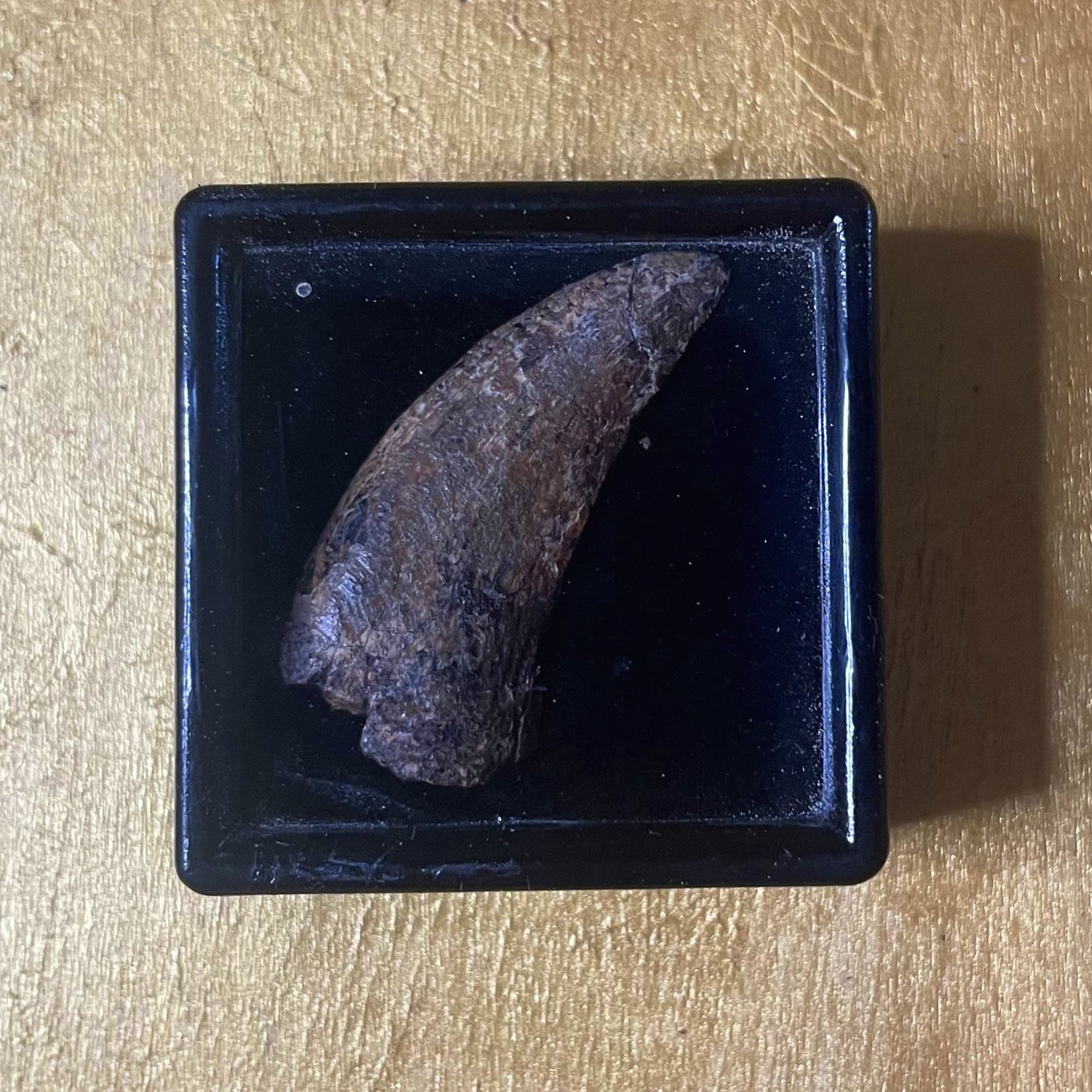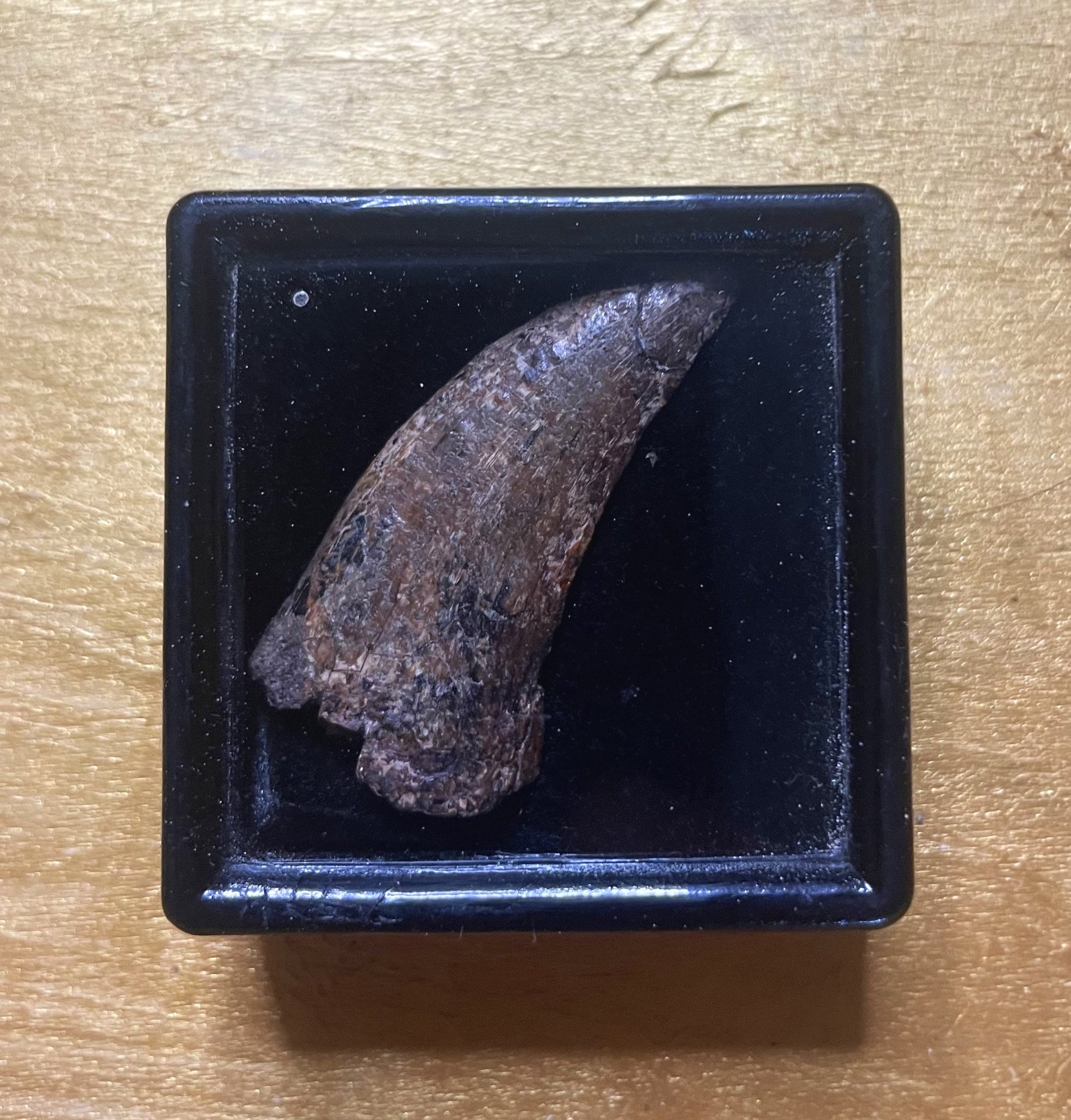Nanotyrannus Tooth Fossil - 1.25"
This is a Tooth Fossil from the Nanotyrannus, collected from the Cretaceous-aged Hell Creek Formation in Montana, making it approximately 70 million years old.
SPECIES
Nanotyrannus
AGE/ERA
Cretaceous 70 Million Years Old
LOCATION
Legally Collected on Private Land in Powderville, Montana
FORMATION
Hell Creek
DIMENSIONS:
Length: 1.25”, Width: 0.75"
**SPECIMEN BOX INCLUDED**
This is a Tooth Fossil from the Nanotyrannus, collected from the Cretaceous-aged Hell Creek Formation in Montana, making it approximately 70 million years old.
SPECIES
Nanotyrannus
AGE/ERA
Cretaceous 70 Million Years Old
LOCATION
Legally Collected on Private Land in Powderville, Montana
FORMATION
Hell Creek
DIMENSIONS:
Length: 1.25”, Width: 0.75"
**SPECIMEN BOX INCLUDED**
This is a Tooth Fossil from the Nanotyrannus, collected from the Cretaceous-aged Hell Creek Formation in Montana, making it approximately 70 million years old.
SPECIES
Nanotyrannus
AGE/ERA
Cretaceous 70 Million Years Old
LOCATION
Legally Collected on Private Land in Powderville, Montana
FORMATION
Hell Creek
DIMENSIONS:
Length: 1.25”, Width: 0.75"
**SPECIMEN BOX INCLUDED**
**Nanotyrannus: Pint Sized Predator of the Cretaceous**
Nanotyrannus, often embroiled in controversy regarding its classification, is a genus of small theropod dinosaur that has been found in the Hell Creek Formation. This Late Cretaceous predator is known from fossils that some scientists believe represent a juvenile Tyrannosaurus rex, while others argue it is a distinct species. The fossils of Nanotyrannus are characterized by a more slender build and proportionally larger number of teeth than those typically found in T. rex, suggesting differences in hunting behavior and diet.
The debate over Nanotyrannus' classification highlights the complexities of paleontological research and the difficulties in interpreting fragmentary fossil records. If it is indeed a separate species, Nanotyrannus provides a fascinating glimpse into the diversity of tyrannosaurids that existed just before the mass extinction at the end of the Cretaceous period. The fossils from Hell Creek have been pivotal in sparking discussions about dinosaur growth patterns, taxonomy, and evolution, making Nanotyrannus a key figure in the study of North American dinosaurs.



